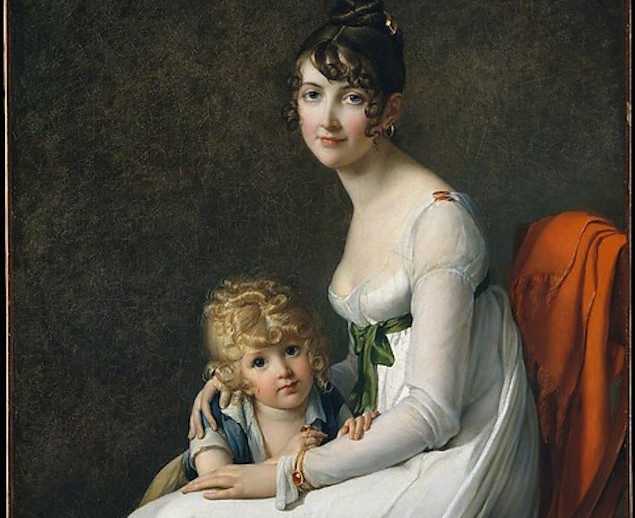Work • Purpose
On Gratitude – and Motivation
In certain companies and offices around the world, there is a crisis of motivation. You know the sort of thing: in a brainstorming session, a key member of the team tunes out. They have a half-formed suggestion, which might actually be very interesting, but they don’t push themselves and let it drop. In another department, there’s an employee who seems to be sick quite often; they’re within their rights and there’s always a valid medical reason, but the manager knows that, in truth, a more devoted worker would be coming in. Across the organisation, there’s a culture of living for the weekend. It seems everyone might be a little on the look-out to leave – if only they can get a better offer. People check LinkedIn a lot. A really great guy went to a rival firm last month.

There are a number of reasons why workers lose motivation, but a central one, one of the most important, comes down to the feeling of not being valued. Gratitude might sound like a small thing, a little add-on with no seismic role to play in the fortunes of companies, but its absence in sufficient doses between layers of the managers and the managed can be responsible for extreme declines in productivity.
When people don’t feel valued they stop putting forward their best efforts. They won’t rack their brains for a slightly better solution or neater deal. At parties, they take revenge: they enjoy spreading unattractive gossip about the firm. These things cost – a lot.
Conversely, there are enormous gains in productivity to be found when people do feel that their work and contribution are being truly appreciated. In The Oath of the Horatii, the 18th century French painter David, captures the energy of loyalty based on love.
The employees get fired up for the next financial year
The three brothers vow to give their lives – if need be – to save the city of ancient Rome, because they know their father (who holds the swords in the middle of the picture) wants them to – and they love and revere him. It’s amazing what people will do, if they really like you and want to deserve your gratitude. It’s what bosses often don’t understand; they’ve noticed how fear can get people moving. They’ve not yet grasped how much further and faster gratitude can drive us.
Leander swims over the Hellespont to meet his mistress Hero
The ancient world was captivated by the story of Leander. He was so devoted to his confusingly-named girlfriend, Hero, that he used to swim a couple of miles each night across the choppy waters of the Hellespont – now more familiar as the Dardanelles – to be with her. The myth has a tragic end: one night Leander is caught up in a storm and drowns. But his strenuous efforts to be with the one he loves speaks of the commanding power of devotion: we will push ourselves intensely in the service of love.
It’s tantalising to think how such potential could be harnessed in other areas of life. Every evening, Hero would light a lamp on her side of the straits to guide Leander. Might there be equivalents, other ‘lamps’ in the world of work, that could lead and spur the imagination?
The failure to offer gratitude (and therefore a root cause of the loss of motivation) can be traced back to a number of false beliefs in the minds of management. Here are just a few:
1. ‘Money should be enough’
The standard view is that what makes a person feel valued is the size of their salary. This is of course (confusingly) partly true, but we know in other areas of life that money only goes so far. While money – or gifts – are always welcome, we generally badly want to be valued in many other ways as well. The very notion that simply paying people ought to be enough has a habit of making them feel insulted, not valued, for it suggests that one only considers them as cash-maximising creatures, which is – in its own way – a slur.
You’d only imagine that someone’s good will could be bought purely for cash if you weren’t really interested in them. We grasp this point intuitively in families. A father who buys his child lots of expensive gifts, but doesn’t otherwise interact with them very much, isn’t building a strong relationship with them. In later years, the neglected party will say things like: ‘Dad was never around; he bought me a bike – it was a great bike, cost a fortune – but he never taught me to ride. He wasn’t there when I fell off, he never saw me do a wheelie down Glenorchy Avenue. I suppose in his way he loved me, but I didn’t feel it. We hardly talk now.’ The insult lies in the father’s assumption that the bike (and lots of other gifts) could be enough. He didn’t acknowledge how much else a child would need from him.

It can sound weird to say that employees might need to offer love. But it’s a theory we’ve been rehearsing in relation to children for at least half a century. This photo of David Cameron walking his daughter Florence to school in London show how far we’ve come – at least in relation to parenting – in grasping how important quality of attention is. Prior to the 21st century, such scenes would have been unthinkable. An image of the most powerful person in the country clutching a doll would have been (in 1873 or 1961) enough to swamp a career in ridicule. There was simply, until recently, no recognition of why this might be a really good thing to do. A father with a big job would have felt that in paying for everything, he was doing all that was necessary. ‘I’m paying the school fees, the doctor’s bill, for the house and the holiday. Why should I pick up their doll?’ he might say. But today, we understand that Cameron is doing the school run because he knows that it is very significant for Florence to see that as well as being a grown-up, he’s fully alive to her world and her needs. The doll is important to her and so it’s important to him too.
We’ve come to understand that in order to help children develop well, we need to be sweet and understanding, patient and playful. We’re alive to how much of a difference this makes. The child who has been met with loving kindness will, we know, develop very differently than if they had always been treated sternly, constantly upbraided and criticised. In parenting we’ve learned to see the extraordinary potential unlocked in a person by love. The rare adult who now thinks this is a load of sentimental nonsense isn’t admired for their focus on practicality; they are regarded as dangerously out of touch with the smart reality of how one gets children to turn out reasonably well.
A comparable revolution awaits in business. What we’ve learned in parenting hasn’t yet been properly absorbed in commercial life. It can still feel as if toughness is a mark of practical efficiency and that to deploy emotional intelligence is an unhelpful luxury.
2. ‘Fear is better than Love when managing people’
There’s an old debate, dating back at least to Ancient Rome, about whether it is better to govern with love or with fear. Notice the either/or structure.
Evidently, there are many occasions where it’s necessary to be dissatisfied with the work or efforts of particular people. Not being grateful can be a productive way of signalling that something isn’t good enough yet. If we were permanently grateful, nothing could get better. Too much praise – that is, praise given too quickly or accorded too easily makes a person think that they’re good enough when they’re not. That isn’t kind either.
Niccolò Machiavelli, a Florentine bureaucrat and author of The Prince (1513) is the man who comes to mind at such moments. He rigorously argued for a dark truth: that people are by nature lazy and cowardly, and that in order to be an effective leader, one should be feared rather than loved. Only terror works.
Santi di Tito, Portrait of Niccolò Machiavelli
However, there’s a strain of devil’s-advocacy in this thinking that is in danger of blinding us to an obvious, but often neglected, truth: that there’s a clear need to play two cards: the card of love and the card of fear. Discussing the importance of the love card – gratitude, appreciation, niceness – doesn’t entail that the fear card is irrelevant, and vice versa.
Many managers fail to hold on to the nuance, as if the choice were about being either always nice or permanently in tough mode. The trick is to develop a style of love that is driven by values; a love that is properly and appropriately conditional.
In Western culture, we distinguish between two ways of thinking about love. Firstly, there’s unconditional love, best exemplified by Jesus’s parable of the prodigal son.
Rembrandt van Rijn, Return of the Prodigal Son
The son has been a complete wastrel. He took his father’s cash, ran off and spent the lot on wine, women and song. He ended up with a terrible job. Then he decided to head back home. What does his father do? Greets him with open arms and ‘kills the fatted calf’ (the story is told in Luke’s Gospel 15:29–30) to illustrate the idea of unconditional love: ‘it doesn’t matter what you do, how far you stray, I will always love you and be here for you’. It’s something that parents do at times feel for their children. It can be an immensely moving idea. But understandably one might be very sceptical of its relevance to business. It’s almost exactly what one can’t have. A business does not exist anywhere on earth that might say: ‘So, you blew that account, the contract you designed was a disaster for the firm, you did the opposite of what you were asked to do and we lost that client: but come home, we love you just the same…’
But there are, fortunately, other, more useful theories of love around. The one we should look to is called philosophical because it was first defined by the Greek philosopher Plato. This idea is that love, properly understood, must be conditional. It says: ‘Love is admiration for what is good. It is not, and can never be, personal. It is related to qualities and actions. I will therefore love you if you are good, but only if you are good’. In this view, love is closely connected to admiration. You love what’s worthy in another person – and therefore you are disappointed when they don’t live up to their capacities.
Apollo Belvedere ca. 120–140 CE
The choice doesn’t have to be between Machiavellian fear and Christian love. The answer lies in holding to a conditional, philosophical theory of love: a love that adequately identifies and then rewards the good.
3. ‘I don’t have time to be grateful’
Another major reason people aren’t more grateful is a fear of how long it might take to be grateful – and an anxiety about what sort of relationship and expectations might be built up if one were, on occasion, to be a little more relaxed. Gratitude can seem painfully at odds with getting things done. A manager might worry that by showing gratitude, they’ll become a chum, rather than the boss. It might feel nice for a little while, but then there’ll come a point when they need to crack the whip and they’ll find it doesn’t work anymore: ‘If I’m grateful I’ll be entering a sticky relationship – I’ll be invited to their cousin’s wedding and then have to find a way of refusing politely. If I ask about the child once, I’ll have to ask every time. That might end up being three hours, accumulated over a year.’
We normally experience kindness as meaning a commitment to someone for a long time. A related point can be seen in the history of philosophy. It’s tempting to think that a serious idea needs a very long book. But, actually, that’s not true.
Think of the French philosopher, La Rochefoucauld (born in Paris in 1613), who wrote a very slim book, barely 60 pages long, that can deservedly be counted as one of the true masterpieces of philosophy. It’s a compendium of acerbic, melancholy observations about the human condition, each of them only a sentence or two long: ‘We all have strength enough to bear the misfortunes of others.’ ‘Some people would never have fallen in love if they hadn’t heard there was such a thing…’ etc. These gems say in a sentence what others have needed whole books for.
This matters because there are related techniques for social brevity. At the heart of good social brevity is psychological accuracy. Brevity is fine (it doesn’t feel brusque or dismissive) when appreciation is accurate; just as La Rochefoucauld’s observations don’t feel flimsy just on the basis of their length. A good compliment latches on to the true goodness of a person or the worth of their effort. The key to brevity is accurate insight. You have to get used to asking yourself about the actual roots of your satisfaction with what someone has done. What is it, in fact, that especially deserves appreciation? You don’t need to go to the pub and spend an hour and a half to convey gratitude convincingly. You need to think hard and fast – and deliver a big-hearted compliment with the rapier-like deftness of a great French aphorist.
4. ‘I’m too worried to stop and pay compliments’
Anxiety is often at the root cause of a lack of gratitude. By definition, a manager is frequently overseeing a wide range of tasks. The individual worker is only doing one bit of a picture whose full expanse they might not be able to see. To the worker, their own effort is a big thing. To the manager, it’s a small thing in relation to the big picture of the needs of the organisation.
Marie-Guillemine Benoist, Madame Philippe Panon Desbassayns de Richemont and Her Son Eugene (1802)
We get this intuitively when it comes to parents and children. The parent has to worry about so many things that the child can’t begin to grasp but which are hugely relevant to the child’s well being (it’s one of the things that makes pictures of mothers and children so poignant). The parent needs to keep their mind on issues like: How will I ensure my child gets a good education? What if there’s a banking collapse and we lose our savings? Can we actually afford to stay in the house we’re in or should we be cutting back and moving somewhere more affordable? What if the political situation worsens, will we need to leave the country? And yet all the child is focused on is: does anyone here like my drawing? Isn’t it amazing I did well in the geography test? I don’t want to write thank you letters!
In business there is necessarily some version of this. The manager inevitably has an eye on the bigger picture in a way that can’t normally be the case for most employees. This means that often they feel simply too burdened to have much emotional bandwidth left over to consider generously the needs and achievements of others. It’s totally understandable. But truly magnanimous people manage to keep their own (perhaps very serious) worries at bay for long enough to be gracious. An instance of this can be found – perhaps unexpectedly – in the life of Margaret Thatcher.
It’s not necessary to be sympathetic politically to Mrs Thatcher to admire her ability to bracket anxiety
In 1979, not long after she had become Prime Minister, she was hosting a dinner at Chequers, her official country house, when a hapless waitress managed to drop a bowl of soup into the lap of the Chancellor of the Exchequer. Everyone must have been expecting the forceful, driven, perfectionist Prime Minister to turn furiously on the mortified waitress. But instead, Mrs Thatcher jumped up to console the distraught young woman: ‘There, there,’ she said, ‘you musn’t be upset’. From the height of power, she entered for a moment into the the reality of what this mishap must have meant in the life of someone vulnerable and of no consequence in the public life of the nation.
There’s a crucial capacity at work, here: the ability to bracket anxiety. Obviously, Mrs. Thatcher had a thousand major concerns on her mind: she was trying to reform industrial relations, control inflation, increase GDP, fight off critics in her own party (to commence the list). In such a situation, anyone could have been forgiven for blowing their top, as most of us often do (you are harassed at work and some clown goes and sets off the fire alarm by mistake. You want to have them hung drawn and quartered).
The ungrateful-seeming person is at heart, often just a very worried person. They don’t feel they’ve got enough time to pause and enter into someone else’s life. They can’t afford to be nice. The fact is though that, really, they – and we – all do…
5. I don’t see that there’s anything in particular to be grateful for…’
It’s extremely easy to lose sight of the pains – and indeed the efforts – of others. We see this most clearly in the way we respond to information in the news media. It’s incredibly easy for the lives of other people to disappear into abstractions. For example, theoretically, we know quite well that there is something called poverty in China. And we realise that many children in all countries have hard lives. But, if we’re honest, we have to admit that mostly we’re not moved by these abstract facts. We don’t really take it in.
That’s why this thing we call ‘art’ can be especially helpful. Art can take us into the experience of other people and transform a statistic into something that moves us. Take these photographs of one poor single father’s struggle to bring up his young son in Wenzhou, China.

Yuan Zhouming makes a meagre living polishing people’s shoes twelve hours a day on the streets of Wenzhou, a large city in south-east China. His wife ran off a few years ago, so he takes his four-year-old son around with him while he’s working. The little boy used to beg for food, dart into the road, and sometimes try to steal things from passers by. So the father has taken to tethering him with a rope to keep him out of mischief. He lives his childhood on a tiny patch of pavement. It’s not cruelty, it’s desperation. The father just can’t do his job and keep an eye on Yuan Wang at the same time. At night, they go home to a single squalid basement room. The boy has a teddy bear – his one comfort.

The lesson that can be drawn from this has applications (though usually of a less dramatic kind) in business. Everyday we’re side by side with people, but we encounter only very particular aspects of who they are. They get simplified into a few basic facts: ‘the girl who lives in Croydon with nice hair who put me down in a meeting last week’ or ‘the guy from sales with funny ears’. The bigger truths about who they are remain hidden: the patience with a troubled younger brother, the still-broken heart from a relationship that capsized four months ago; the prized collection of copper saucepans; the way they are haunted by memory of evenings on Playa Ancha beach and the sun going down over Valparaiso Bay.
These aren’t minor matters, because getting the best out of a person requires understanding what can move them, inspire them, touch their ambitions and imagination. Being appreciated as the person one really is is a huge matter.
***
So what can we do? Gratitude – like a sense of humour – isn’t something we normally think about learning in a systematic deliberate way. We’d more likely imagine it as just something some people have a knack for and others don’t. But in fact, as we’re coming to see, skills in this area are not simply a matter of luck. They depend on an unfamiliar muscle, which it might at first feel quite odd to flex deliberately, but which we should take care to exercise on a regular basis.
To start to develop this gratitude muscle, we might begin quite far away from the usual concerns of business. We can tap into an elemental idea of gratitude, first developed by a 17th-century Japanese Buddhist monk and poet called Matsuo Bashō. Bashō was interested in teaching his followers how to nurture their capacity to appreciate everything around them. There are times when, under the influence of certain pieces of poetry or works of art, one may leave one’s ego and anxieties behind, and look at oneself and others from a very unusual perspective: as if one was not oneself. One can float free of concerns and start to identify with things which we normally pay little attention to. One starts to notice the breeze, the softness of the grass underfoot, moisture in the air, one’s own breath, the sound of a bell ringing far away, a bird on a tree through the window… One can become in the imagination a rock, water, the stars, leading one to an enlightened frame of mind known as muga, or a loss-of-awareness-of-oneself.
‘Hibiscus with Haiku’ by Bashō
Bashō’s aim wasn’t just to liberate us from the burden of being ourselves: it was to initiate a distinctive state of mind where gratitude would be easier, as would kindness and empathy. Thanks to this distinctive spiritual practice, one might end up feeling grateful for often unnoticed things like: rain, trees, clouds, a bowl of rice or a helpful hand from a colleague.
These moments of heightened appreciation reveal – if nothing else – that our ‘gratitude meter’ is quite a variable instrument that we tone down and up. Sometimes we may feel gratitude for the existence of a small plant; at other times we’re hugely irritated by sporadic wifi coverage while touring Dartmouth National Park.
Getting better at appreciating things which we tend to take for granted is one of the big themes of art.
Adriaen Coorte, Strawberries (1696)
In theory, we already think that strawberries are nice. But the Dutch 17th-century artist Adriaen Coorte has made a monument to them. He wants to resensitise us to their extraordinary beauty. He’s reminding us that we love an aspect of the world more than we thought, and that there are things we took for granted. He’s looking at strawberries like an appreciative extra-terrestrial, re-finding a sense of wonder and encouraging us to do the same. The artist knows something crucial about us: how familiarity dulls our appreciation of what is on offer. By inviting us to concentrate just for a minute or two he can refresh our curiosity about, and engagement with, life.
We need to do with many other things what Adriaen Coorte did with strawberries. Starting with some of our colleagues. In the spirit of Coorte and Bashō, we might try out a few Gratitude Muscle Exercises: we could begin by trying to imagine a day in the life of an office chair. Then, setting aside our preoccupation with ourselves, we could try to describe a day as it might seem through the eyes of a colleague (no names needed) that we don’t like very much: we’d imagine what it might be like to be them brushing their teeth or, on the way to the bus stop, speaking to their mother on the phone.
***
In essence, gratitude is hugely important but currently lacks prestige. People say: ‘I don’t have time to write the report or go to the meeting’. They never say: ‘I don’t have time to sit and chat with my workers, or to make them feel appreciated’. That’s because we have a picture of how a report and meeting contribute to the overall economic performance of a business but, as yet, we don’t properly recognise the role gratitude can play in the success of a company. We don’t see it as the key that unlocks motivation and great performance. Getting gratitude right deserves to be recognised as one of the great arts of management, something that might just get people to swim the Hellespont for you.


































